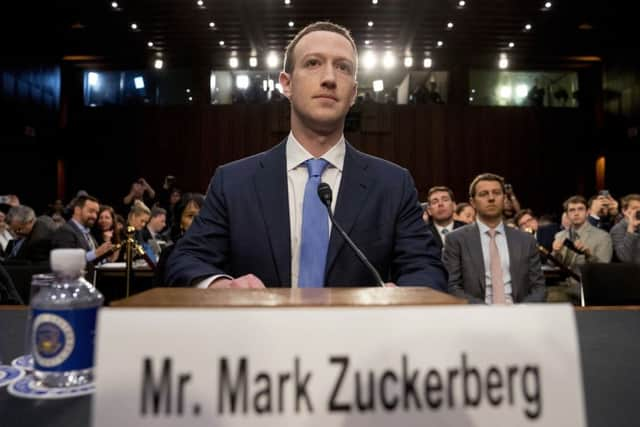Facebook’s addictive ability to cause harm has parallels with Big Tobacco: David Richards


In public, the industry presented itself as the supplier of a legal product used by responsible adults for a widely enjoyed social habit. But behind the scenes, this was a predatory industry engaged in what campaigners Clive Bates and Andy Rowell have described as “the most astonishing systematic corporate deceit of all time”.
Yet its ability to cause public harm pales in comparison to a new threat of unprecedented size and scale that has emerged in recent years, one that we are only just beginning to understand: social media and specifically its negative impact on the mental health of its users.
Advertisement
Hide AdAdvertisement
Hide AdI am the founder, CEO and chairman of WANdisco plc, a public software company jointly headquartered in Silicon Valley and Sheffield, and I have spent two decades at the leading edge of the technology industry.
It saddens me that some of the finest minds of my generation have applied themselves to the creation of a purposefully addictive platform that I’m convinced is driving a new mental health epidemic.
With nearly three billion active users, it is even bigger than Big Tobacco. The UK government seems to be waking up to the dangers and has just finished consulting on its Online Harms White Paper, which includes plans to crack down on terrorist propaganda, child abuse and bullying online through the creation of a new regulator. I believe we need to go further and look at the effects of social media per se on mental health and wellbeing, especially among young people.
Most of us have family members and friends who have suffered mental health problems, either caused or made worse by social media. Even Facebook has questioned whether simply spending time on social media might be bad for our mental health.
Advertisement
Hide AdAdvertisement
Hide AdMark Zuckerberg’s colossus had its own Big Tobacco moment in late 2017 when billionaire early investor Sean Parker admitted that Facebook’s inventors consciously exploited a vulnerability in human psychology. “God only knows what it’s doing to our children’s brains,” he said.
The Government has an absolute duty to find out.
Ministers might have attracted headlines with their White Paper, but Big Tech, like Big Tobacco, has an army of well-connected and expensive lobbyists, including the former UK Deputy Prime Minister Sir Nick Clegg, who will be working to influence parliament to protect their lucrative business model and water down any proposals in the name of safeguarding innovation, the digital economy and freedom of speech.
Let us be aware of the damage that is being done. According to the Royal Society for Public Health, 91 per cent of 16 to 24-year-olds use the internet for social networking; social media has been described as more addictive than cigarettes and alcohol; rates of anxiety and depression in young people have risen 70 per cent in the past 25 years; social media use is linked with increased rates of anxiety, depression and poor sleep; and cyber bullying is a growing problem with seven in 10 young people saying they have experienced it.
Advertisement
Hide AdAdvertisement
Hide AdRegulation is a positive first step in combating these problems but in the case of Big Tobacco, it hasn’t stopped smoking from killing an estimated seven million people every year. In spite of everything we now know about smoking, Big Tobacco still wields enormous power and remains a global player with a base of more than one billion customers across the world.
Like Big Tobacco, Big Tech has a closely guarded business model, which generates billions of dollars in profits. It uses legal loopholes to reduce its tax liabilities. It pleads freedom but evades its responsibilities.
Its business activities place strain on our cash-strapped NHS.
We need more research into the correlation between social media and mental health and through the David and Jane Richards Family Foundation, our computer science and ecology charity, we are prepared to help fund it.
Advertisement
Hide AdAdvertisement
Hide AdIt is time we fully understood the true impact that Big Tech’s platforms and secretive algorithms are having on young minds, for the sake of everyone’s future.
David Richards is the founder and chief executive of Sheffield-based technology company WANdisco. For more details about the David and Jane Richards Family Foundation, visit www.djrff.org